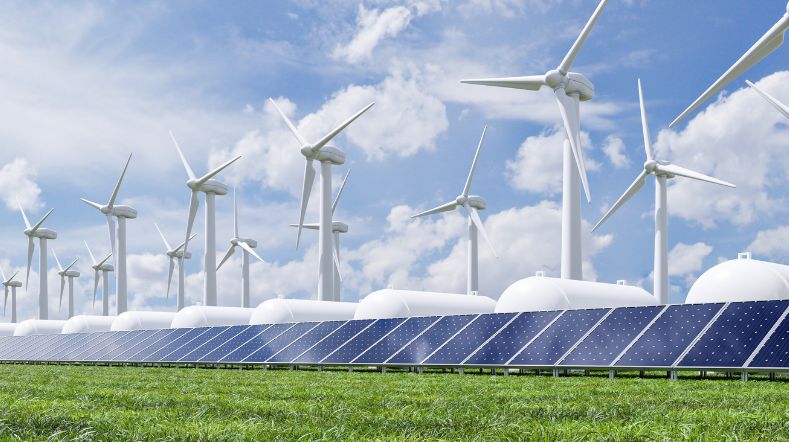
CO2 reduction and green carbon in industry
This is the time to reduce CO2 emissions and create new opportunities for a sustainable, circular industry. Discover the latest developments and solutions during this webinar. TNO experts present three innovative technologies that convert carbon and CO2 into sustainable products such as plastics, fuels and food.
Green carbon and sustainable use of CO2 in the energy transition
The Netherlands and Europe have major climate ambitions. This also has consequences for the sustainability of the industry. The industry must emit more than 20 megatons of CO2 per year less, so that emissions are reduced by 60% compared to 1990, which is 5 to 5.9 megatons more than agreed in the Climate Agreement.
Making value chains sustainable also offers new economic opportunities for the industry and service sectors. Companies can take a leading position and continue to distinguish themselves by making the necessary energy and material transition earlier than others. Also the government wants to help realize fundamentally new sustainable technologies.
Three innovative technologies highlighted:
In this webinar, TNO introduces three technologies that make the industry more sustainable with Green Carbon from residual flows and by converting industrial CO2 into new everyday products that we will need in the future, such as: plastics, fuels and food.
Webinar programme
This webinar took place on June 21st 2023.
Carbon capture and sustainability in industry
Introduction: three TNO technologies that reduces CO2 and convert carbon into sustainable products.
Soledad van Eijk, Senior Business Developer Industrial Carbon Capture at TNO.

ZEUS-technology
The ZEUS technology for converting captured CO2 into green chemicals via electrochemistry. Examples of products that can be made are formic acid, carbon monoxide for syngas, but also ethanol and ethylene
Matti van Schooneveld, Senior Business Developer Sustainable Chemical Industry

EMBER-technologie
The Green Carbon EMBER technology contributes to closing industrial cycles and a circular carbon economy by efficiently converting carbon into the renewable fuel and chemical building blocks; converting light hydrocarbon by-products to H2, syngas and carbon black.
Jan Willem Könemann, Senior Business Developer Synthetic Fuels and Feedstock

Plasma technology
Using plasma technology, carbon residual flows such as CO2 and biogas can be efficiently converted into syngas. The syngas can then be used as a starting product for conversion to methanol, applicable for polymer production, bio-fuel production or protein production.
Hans Linden, Project Manager Plasma Chemistry

Reflection of the Nova Institute on these technologies
Pauline Ruiz joined the nova team in 2020 in the Sustainability department. She is an expert in bio- and CO₂-based chemicals and polymers and supports the nova team in several projects related to sustainability, life cycle assessment, technology and markets.

Interesting for:
- Industry
- Chemical industry
- Suppliers
- Government and policymakers
Get inspired
E-fuels and biofuels: key to a climate-neutral industry and transport

CO2 storage


Energy infrastructure and transport


Tomorrow’s hydrogen production and infrastructure: building towards a secure and robust energy system

CO2 infrastructure and transport





